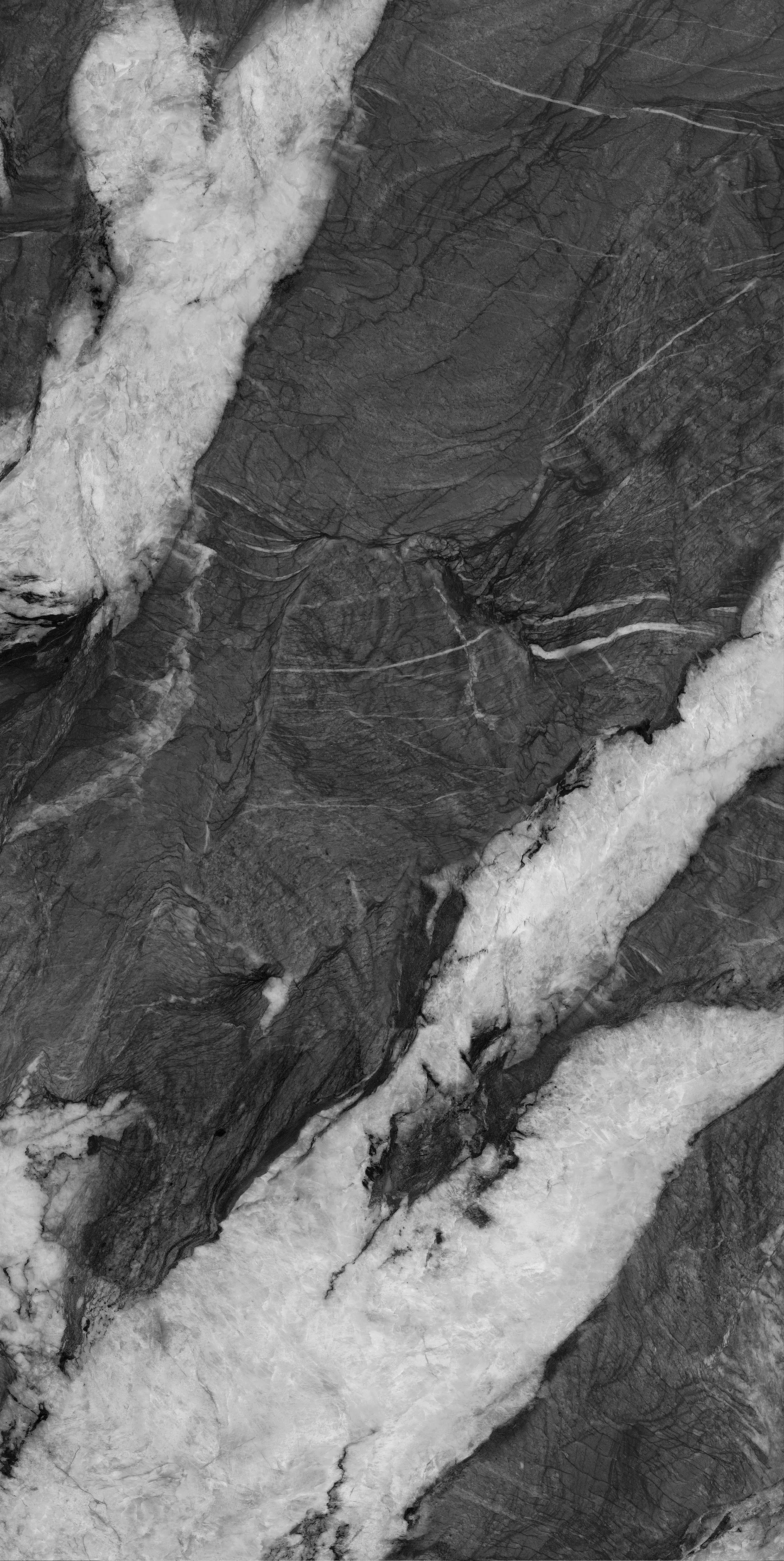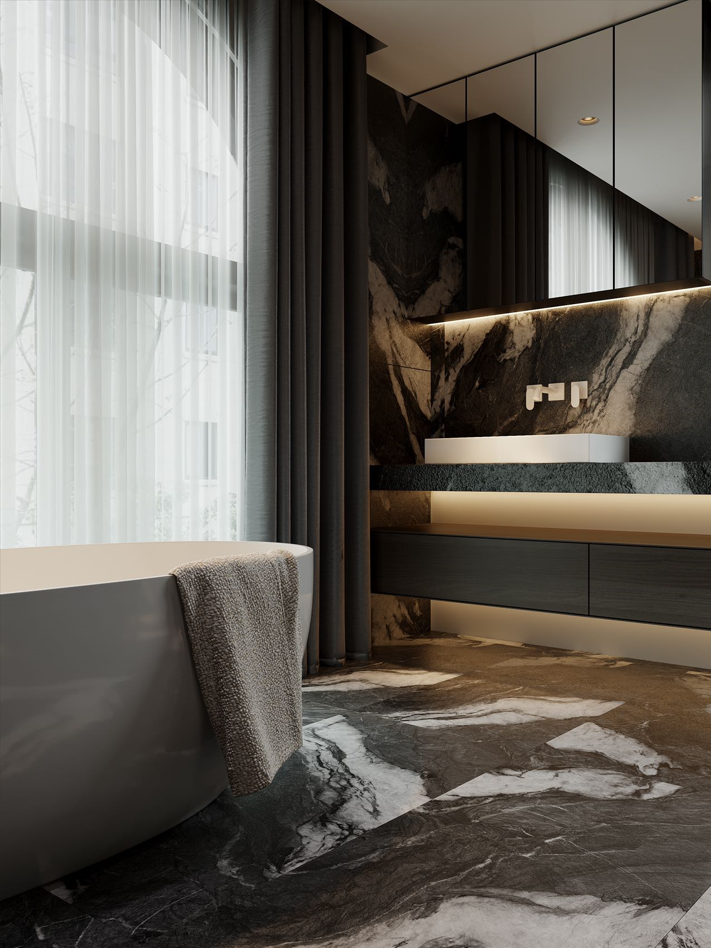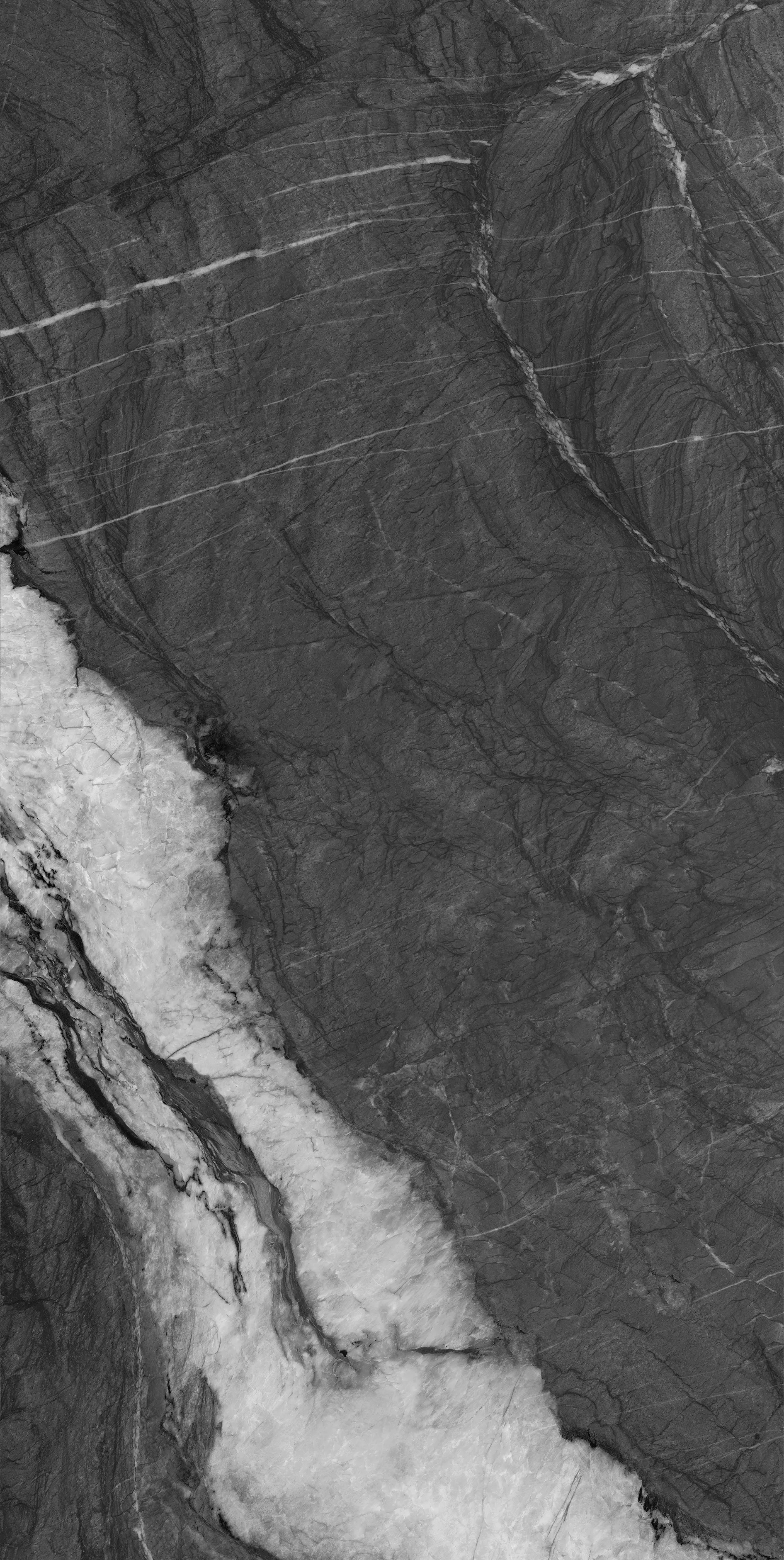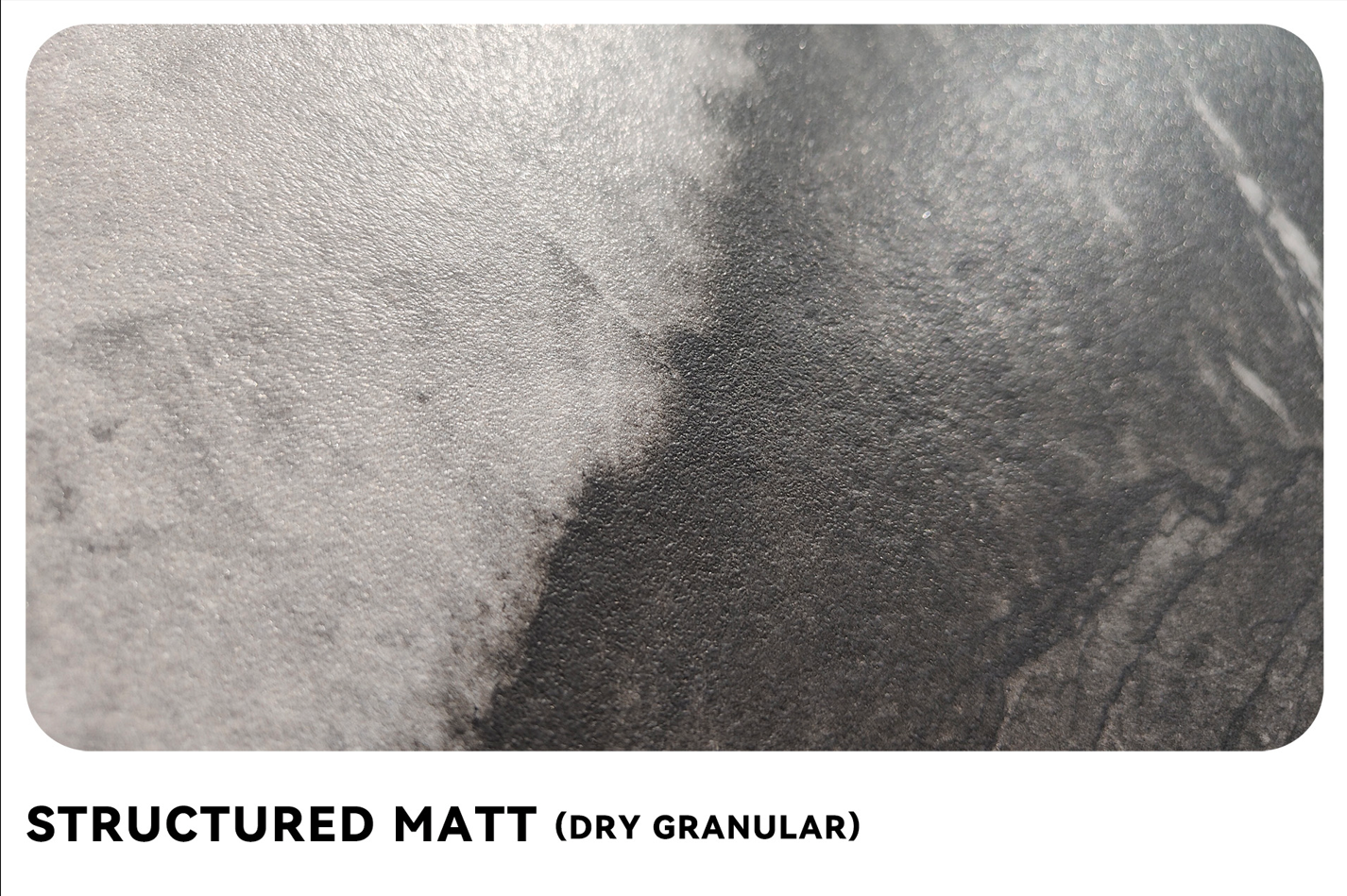Marble stone slabs, with their elegant veining and natural texture, are one of the most popular high-end stone materials for residential and commercial spaces. However, many households often have a question when cleaning marble: Can I use vinegar to clean marble stone slab?
On the surface, vinegar, a natural cleaner that effectively removes scale, oil, and odors, seems to be an environmentally friendly and practical option. But when it comes to marble, a natural carbonate stone, is it truly safe to use vinegar to clean it?
This article will systematically explain the chemical principles, material properties, cleaning risks, and scientific alternatives to help you truly understand the science of marble cleaning.

Can vinegar really be used to clean marble?
The answer is: No!
Whether it's white vinegar, apple cider vinegar, or diluted vinegar, it's not recommended for cleaning marble surfaces.
This is because marble is primarily composed of calcium carbonate (CaCO₃), while vinegar is primarily composed of acetic acid (CH₃COOH). When these two come into contact, a chemical reaction occurs, producing carbon dioxide bubbles, water, and calcium acetate.
This reaction corrodes the marble stone slab surface, destroying its gloss and forming permanent stains.
The chemical reaction formula is as follows:
CaCO₃ + 2CH₃COOH → Ca(CH₃COO)₂ + H₂O + CO₂↑
In other words, when you use vinegar to clean marble stone slab, you're actually "dissolving" its surface layer. This damages the smooth, polished surface, leaving it dull, rough, and even spotted.

Why does vinegar corrode marble stone slab? — A Chemical Analysis
1. Mineral Composition of Marble
Marble is a naturally occurring metamorphic rock primarily composed of calcite (calcium carbonate) or dolomite (calcium magnesium carbonate). Calcium carbonate is a weakly alkaline mineral that is very sensitive to acid.
When it comes into contact with acidic solutions (such as vinegar, lemon juice, cola, or acidic detergents), it reacts immediately, corroding the surface.
2. Vinegar's Acidity
The acidity of household white vinegar is typically 3% to 5%. While seemingly mild, it's highly reactive with carbonate structures.
Even brief contact can cause tiny etch marks on the surface of a marble slab. These spots cannot be removed by simple wiping and require re-polishing.
3. Irreversibility of Chemical Corrosion
Once acid corrosion occurs on a marble stone slab, its smoothness and reflectivity are permanently reduced. Unlike stains, corrosion doesn't adhere to the surface; rather, it destroys the structure. This means that even subsequent application of a curing agent will be difficult to fully restore.
What cleaning errors can damage marble slabs?
Many people unknowingly use common but dangerous cleaning methods. The following methods can also damage marble slabs.
1. Cleaning with Vinegar or Lemon Juice
As mentioned above, acids react with calcium carbonate.
This may remove stains in the short term, but in the long term, it will cause the marble slab to lose its luster and develop spots.
2. Using bleach or ammonia
While bleach (sodium hypochlorite) and ammonia are not acidic, their strong alkalinity can still damage the protective coating on the surface of marble slabs, causing them to fade or turn white.
3. Using abrasive cleaners or steel wool
Abrasive particles can scratch the surface of marble slabs, causing them to lose their original mirror finish. This physical wear, like chemical corrosion, is irreversible.
4. Frequently soaking in water
Although marble slabs appear hard, they have a microporous structure. Prolonged contact with water can cause discoloration, efflorescence, or loss of the crystal layer. Therefore, wet mopping is acceptable, but water should not be allowed to remain on the surface for extended periods.
Why do marble slabs require specialized cleaning methods?
1. The physical structure of natural marble slabs determines their sensitivity
Although the surface of a marble slab is polished and dense, it still contains microscopic pores within. These pores absorb liquids and react with the minerals within. If the cleaning agent has the wrong pH, it can cause deep corrosion or discoloration.
2. Low Chemical Stability
Unlike granite and quartz, marble slabs have poor chemical stability. Granite is primarily composed of silicate minerals and is highly acid-resistant, while marble slabs' carbonate components are extremely acid-sensitive.
3. Limited Surface Protective Layer
Marble slabs are typically treated with a surface protective layer at the factory, but this layer does not protect against acid corrosion. Using vinegar to clean them quickly destroys this protective layer, exposing the stone to direct acid and accelerating aging.
So, how should marble slabs be properly cleaned?
Since vinegar can't be used to clean marble stone slabs, what are some safe and effective cleaning methods?
1. Use a neutral detergent
Use a neutral stone-specific cleaner with a pH of 7. This will remove stains without chemically reacting with the marble stone slab.
To use, dilute the detergent and spray it on the surface. Gently wipe with a soft cloth or sponge. Finally, rinse with clean water and wipe dry.
2. Daily Dust Removal
Marble slabs easily accumulate dust and should be wiped daily with a clean microfiber cloth to prevent friction damage from dust particles.
3. Degreasing Methods
For marble countertops in kitchen areas, use a stone degreaser or diluted neutral soap and water. Avoid using acid-containing kitchen cleaning sprays.
4. Protection and Maintenance
It is recommended to reapply a layer of stone sealer every 6–12 months to reduce the risk of water absorption and staining.
What should I do if vinegar is accidentally used to clean marble slabs?
1. Stop the reaction immediately
If vinegar has come into contact with the marble slab, immediately rinse with plenty of water and blot dry with a soft cloth to prevent further reaction.
2. Inspect the surface for damage
If only minor gloss loss is present, try using a stone polishing compound to restore the surface brightness.
If significant stains or dark spots are present, consult a professional stone care professional for re-polishing and repair.
3. Post-Repair
After repair, reapply a protective agent and avoid using any acidic substances to clean the marble stone slab.

What are some natural alternatives to vinegar?
Many people prefer natural cleaning methods, but natural doesn't guarantee safety for all materials. The following methods can be used to clean marble stone slabs without damaging them:
1. Warm Water + Neutral Soap
Add a few drops of mild dishwashing liquid to warm water, rub gently with a soft cloth, and then wipe clean with clean water. This is the safest daily cleaning method.
2. Baking Soda Paste for Light Stains
For minor oil or tea stains, mix baking soda (sodium bicarbonate) with water to form a paste. Apply it to the stain, let it sit for a few minutes, then rub gently and rinse with clean water.
Note: Baking soda is slightly alkaline and should not be used for extended or frequent periods to prevent damaging the surface finish.
3. Alcohol Disinfection
If disinfection is necessary, spray the surface with 70% rubbing alcohol and quickly wipe dry. Alcohol evaporates quickly and doesn't react chemically with calcium carbonate.
Common Misconceptions About Cleaning and Maintaining Marble Slabs
Myth 1: The more acidic, the better it removes stains
In fact, stronger acids can cause more damage to marble stone slabs. Acidic cleaners directly dissolve the calcium carbonate in the stone, causing surface loss and even pitting.
Myth 2: Daily wet mopping is cleaner
Frequent wet mopping allows moisture to penetrate the stone, causing whitening, bulging, or cracking. The correct approach is to use dry mopping as a primary method, supplemented by wet mopping.
Myth 3: Marble slabs are hard and scratch-resistant
While marble stone slabs are harder than ordinary plastics, they are still harder than metal, sand, or ceramic. Rough cloths, grit from shoe soles, or steel wool can all leave minor scratches on the surface.
Myth 4: Air-drying after cleaning is sufficient
Air-drying can leave water marks, so it's recommended to thoroughly dry with a clean, soft cloth. Prolonged drying can lead to a dull surface.

Frequently Asked Questions (FAQs)
Why does marble become dull after cleaning with vinegar?
This is because the acid in vinegar reacts with the calcium carbonate in the marble stone slab, destroying the glossy surface layer and causing irreversible chemical corrosion.
Can I use diluted vinegar for cleaning?
No. Even if diluted 10 times, it still has acidic properties and can still cause chemical reactions and surface damage.
Is there a completely safe cleaner?
You can use a neutral stone cleaner or a diluted mild soap solution. These cleaners have a pH close to 7 and are safe for marble.
What should I do if stains have penetrated the marble?
You can use stone stain remover powder or a professional stain remover cream to absorb the stain, then use a protective agent to seal the pores.
Can I use a steam cleaner?
Not recommended. High-temperature steam can damage the protective layer and cause microcracks due to thermal expansion and contraction.
Vinegar is not a good choice for cleaning marble slabs
Back to the question itself—"Can I use vinegar to clean marble slabs?"—
The answer is still a clear: No.
Because:
• Vinegar is an acidic liquid and will chemically react with the calcium carbonate component of marble slabs;
• Using vinegar can cause the surface gloss to fade, pitting to form, and damage the protective layer;
• Long-term use can accelerate the aging of marble slabs, causing them to dull and discolor.
The correct approach is to use a neutral stone cleaner, a clean, soft cloth, and an appropriate amount of water, combined with regular maintenance and polishing.
Can WOWSLAB handle complex installation projects?
Absolutely. WOWSLAB provides not only high-quality marble slabs and sintered stone slabs, but also full support for complex residential and commercial installation projects. Our China-based company offers wholesale, bulk purchasing, customized solutions, competitive prices, and promotional discounts.
Buyers receive professional guidance from our experienced team throughout the process, including project planning, material selection, and installation instructions.


